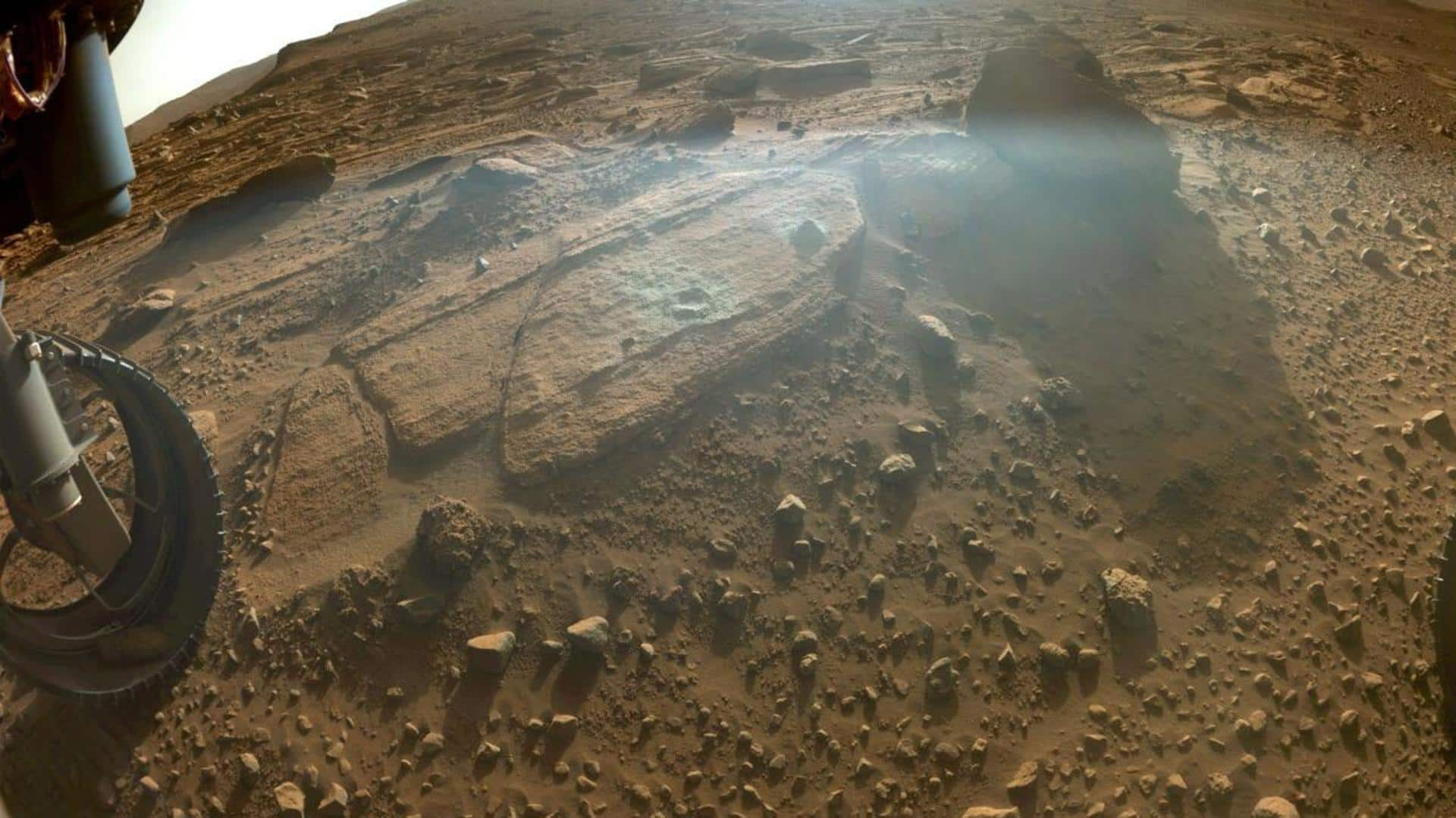
NASA's Perseverance picks new Martian sample: What's special about it
What's the story
NASA's Perseverance Rover (Percy) has picked up the first Martian sample as part of its new science campaign.
The recently collected specimen is a roughly 6cm long sedimentary rock, the size of a piece of classroom chalk. It has been safely stashed away in the rover's belly.
In its latest science campaign, Percy is busy probing the top of Jezero Crater's ancient river delta.
Context
Why does this story matter?
On each new science campaign, the mission's team aims to explore a new area on Mars. As part of its latest campaign, the six-wheeled robotic explorer is examining the top of an ancient river delta in hopes of finding signs of past microbial life on Mars.
The car-sized Perseverance Rover recently completed two years on Mars in February.
Campaign
The sample was collected during Percy's 749th Martian day
On March 30, which was the rover's 749th Martian day on the Red Planet, the rover drilled into a rock named 'Berea' to collect the sample, which the team named 'Melyn.'
Researchers think that Berea may have formed when an ancient river, from elsewhere on the planet, flowed downstream into the Jerezo crater, carrying building blocks of the rock, like sediments and minerals.
Sample
The newly collected sample is Percy's 16th rock specimen
The newly collected sample is the 16th rock specimen picked up by Percy.
Along with rocky cores, Percy has collected other sample types as well, which include regolith, broken rock and dust, and Mars's atmosphere.
So far, the rover has collected 19 out of the 38 planned samples. Out of the collected samples, 16 are Martian rock specimens, which are sealed in titanium tubes.
Official words
The latest rock specimen is rich in carbonate
The team is particularly excited about the latest rock specimen as it is rich in carbonate.
"Carbonate rocks on Earth can be good at preserving fossilized lifeforms," said Katie Stack Morgan, deputy project scientist for the Perseverance mission.
"If biosignatures were present in this part of Jezero Crater, it could be a rock like this one that could very well hold their secrets."
Implications
The Martian samples could provide valuable information about the planet
Carbonates form due to chemical interactions in liquid water, explains NASA.
Given that the Berea rock is carbonate-rich, it suggests that Mars might have been covered by water in the past.
Further, the Martian specimens can help scientists understand the "changes in the planet's climate."
The samples collected by Percy could hold information about the past life on Mars, if it ever existed.
Information
A NASA-ESA campaign will bring back samples from Mars
NASA, along with the European Space Agency, is planning to bring back the Martian samples collected by Percy via the Mars Sample Return Campaign (MSR) by the early 2030s. Meanwhile, Percy is now headed toward its next location called 'Castell Henllys.'